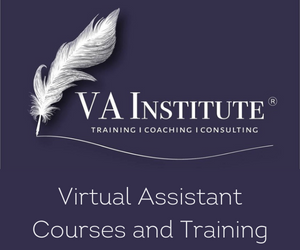Whether you’re working at home and looking to expand your business or you’ve just been promoted to Team Leader of Supervisor, managing a Personal Assistant for the first-time can be quite unnerving.
This is all new to you. You are not sure how to act! Should you be super friendly? Should you be a tad distant? Is it appropriate to take him/her to lunch as a reward for a job well done?
What are the duties of an Assistant?
As described on Personal Assistant Tips– a PA’s positions demand competence and skill at performing the following duties:
– reading, monitoring and responding to emails,
– answering calls and handling queries,
– preparing correspondence,
– commissioning work,
– liaising with staff, clients, etc.,
– managing an electronic diary,
– booking meetings,
– organising travel and preparing complex travel itineraries,
– writing minutes,
– taking dictation,
– planning, organising and managing events,
– managing a budget,
– attending events/meetings,
– conducting research on the internet,
– writing reports, executive summaries and newsletters,
– preparing presentations,
– preparing papers for meetings,
– managing and reviewing filing and office systems,
– updating websites,
– typing documents,
– sourcing and ordering stationery and office equipment,
– managing projects,
– managing an Assistant.
It can take some time but you will definitely get the hang of managing your assistant. Here are some tips to help you on the right track:
1. Discuss responsibilities.
It is important that your PA knows what their job responsibilities are and what you expect of them. Will they be taking calls, managing your work schedule, arranging your travel itineraries? Do work duties include filing documents, managing the office, or researching data? Are you sharing your personal assistant with another executive? What is your assistant’s work schedule? These are just some of the things that you and your personal assistant must agree on. It is very helpful to define the work and write it down as clearly as possible in a job description, so that nothing of importance in your daily/weekly requirements is missed.
2. Schedule regular meetings.
Studies have shown that the No. 1 reason an employee leaves is because of a lousy boss. Avoid being branded as a bad boss by scheduling regular meetings with your staff. The Agenda can vary each week. Discuss tips on how to improve work place relations to giving ad-hoc assignments that allows your assistant to learn new insights or just checking in to see how things are going.
3. Provide communication channels and use them.
You and your PA must work out a system when you can inform each other of updates, schedule changes, and other matters. Can your assistant text or call you during meetings? If another personal assistant directly informs you of a cancelled meeting, you need to tell your own assistant of the changes. Clear communication between you and your staff ensures work efficiency. You don’t want to labor over a presentation only to find out that you just wasted your time because the meeting was cancelled and your assistant didn’t tell you.
Communication and teamwork are at the heart of a great team. Working together is a team effort where you and your PA are able to talk openly. PA’s cannot read your mind and no matter the level of training, new people will invariably require some explanation of the way you like things done, or why you require things done in a certain way. Many misunderstandings can be avoided if you make these explanations as clear and concise as possible.
4. Respect boundaries.
If your assistant needs to work overtime, let them know well in advance. Bear in mind that your PA does have a life and possibly a family and you might be encroaching on time. Keep personal errands to a minimum and if you can, avoid asking them o do what you or your family members are supposed to do like picking up the kids or the dry cleaning.
5. Be respectful.
When your assistant does a great job, compliment them. When your PA does something wrong, reprimand them without being disrespectful. When you offend, learn to apologize. Keep in mind that your assistant is also human, capable of a whole spectrum of emotions. Treat them like a human being and they will respect you for that.
6. Provide Feedback
Giving and receiving feedback is a particularly important part of your relationship with your personal assistant. Give feedback to provide information, not to criticise and remember that positive feedback is just as important as negative feedback
7. Set deadlines.
If you have something important due, set a date for it. This will help your assistant prioritise your tasks. It’s also worth setting the due date a few days early so you have time for follow-up tasks and comments.
In Summary – SMART Theory
You can easily remember these when writing the tasks by using a simple, and appropriate, acronym:
- S pecific, significant
- M easurable, meaningful, motivational
- A chievable, action-oriented
- R ealistic, relevant, reasonable, rewarding (for you), results-oriented
- T ime-based, timely, tangible, trackable
You may be a top executive of a company that tries to save the world but remember that you can’t do everything. Your personal assistant takes care of the small stuff that allows you to manage the big stuff.
At the risk of sounding really cheesy and I quote the great Bette Midler, I think personal assistants are “the wind beneath my wings.”






